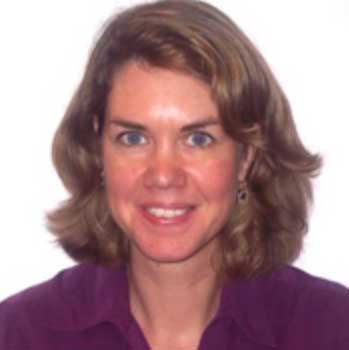Interview with Professor Geneviève Piérart, Haute École de Travail Social, Fribourg
Introduction
 The number of migrants seeking refuge and work in the EU has increased during the past ten years. Language barriers, limited social networks and isolation are some of the factors that may limit migrants’ ability to ensure their own safety and well-being. If there is a disability involved, the limitations become even greater. Persons with disabilities comprise a significance minority of migrants and refugees[1]. The United Nations Committee on the Protection of the Rights of All Migrant Workers and Members of their Families and the Committee on the Rights of Persons with Disabilities call upon member states to address disabilities in large-scale movements[2]
The number of migrants seeking refuge and work in the EU has increased during the past ten years. Language barriers, limited social networks and isolation are some of the factors that may limit migrants’ ability to ensure their own safety and well-being. If there is a disability involved, the limitations become even greater. Persons with disabilities comprise a significance minority of migrants and refugees[1]. The United Nations Committee on the Protection of the Rights of All Migrant Workers and Members of their Families and the Committee on the Rights of Persons with Disabilities call upon member states to address disabilities in large-scale movements[2]
Research shows that immigrant families raising children with disabilities reorganize their problems around the disability, which adds to the constraints they already have learning a new language, obtaining residence permits or looking for work Therefore, providing culturally sensitive care to immigrants raising a child with a disability is very important[3]
The purpose of this interview is to shed light on disability as a migrant problem and to mainstream disability issues within the field of intercultural management in Switzerland.
Dr Geneviève Piérart, a professor at the School of Social Work in Fribourg, Switzerland (Haute école de travail social Fribourg), promotes a culture- and disability-sensitive service to immigrant families raising a child with disabilities. She is the first and only person to research the issue of migration and disability in Switzerland. Culture- and disability-sensitive service means that providers should be aware of differences in cultural beliefs and values regarding how disability is viewed. Some kind of training is needed for both professionals and families, but no such training exists yet in Switzerland.
What brought you to research immigrant families raising children with disabilities?
I studied anthropology and special education at the University of Fribourg. After completing my studies, I started working as a professional educator for children aged 6 to 20 with intellectual disabilities and their families at two different schools in Lausanne and Fribourg. During the four years I worked there, I noticed that the specific needs and problems experienced by migrant families raising children with disabilities were usually not met. Some families asked for more help than others, and some did not ask for help at all. I wanted a more exact understanding of what their specific needs were and why they behaved in certain ways. So understanding the needs of migrant families raising children with disabilities in Switzerland became a research topic for my PhD.
What were some typical problems and specific needs of families raising children with disabilities?
Professionals working with migrants, such as social workers, special educators or therapists, encounter challenges to provide appropriate services, in part because they do not differentiate between non-immigrant and immigrant families. However, immigrant families have different culture backgrounds, some families have had trauma, or they are encountering a lack of knowledge of resources due to their language barriers. Often institutions working with immigrant families with disabilities do not provide necessary services, such as interpreters, due to insufficient resources. Sometimes older children translate for their parents who do not speak the language.
Here are some cases I have experienced.
- Some families from North African, Asian or Eastern European countries wanted to invite me to their houses so we could get to know each other better, which is a usual practice in their countries. I could not go, however, because the institution I worked for did not allow me to, since keeping some kind of distance between clients and professionals is important in Western culture. This had an impact on the effectiveness of the support for the families.
- Families raising children with disabilities often needed more time to adapt to a new culture. When their children were diagnosed with some impairments, the families had difficulty accepting it. Here in Switzerland, intervention for children with disabilities happens at an early stage, as it is considered better for the children’s development when they are stimulated earlier. However, many migrant parents did not want intervention at an early stage, because they needed time to accept the disability and to adapt to the host country. Sometimes the child‘s needs were not a priority for the parents: for example, when they had to struggle to find a job or to get papers to stay in Switzerland.
- Help was needed not only for children with disabilities but also for the family. Immigrants, living far away from their close families or friends, usually lack a social network. This is replaced by formal services, but sometimes it is hard for them to accept when, for example, professionals come to their homes to babysit.
- Migrant families usually search for help via schools and social services or within the community. However, in cases of families raising children with disabilities, sometimes they did not seek help because they felt the stigma and shame of having a disabled child.
- A family from France raising a deaf child were very surprised and disappointed to learn that in Switzerland they could not get some of the services they were used to in France. They did not imagine that services could be so different in neighboring countries.
What were some of the findings from your research?
I learned that the responses of migrant families were influenced by when their child became disabled: before, during or after migration to Switzerland. Differences are described below:
| Child developed disability | Situation |
| Before migration | Wealthy families from Eastern Europe or North Africa could get good services in their own countries, but they found that they could not have the same services in Switzerland. Those wealthy families had high level of expectations.
Families who did not have services available in their own countries tended to expect to get more services in Switzerland. When they found that this was not the case, they were disappointed. |
| During migration | Adapting to a new culture is hard enough, without having a child develop a disability at the same time. This situation resulted in culture shock and more vulnerable families, with no time to adapt. |
| After migration | Sometimes the fact that children developed disabilities contradicted the family project. Some families wanted to go back to their countries after 10 years but felt it would be better to stay in Switzerland due to the needs of their children. It was a hard decision for the whole family. |
I saw research studies on the same issues in other countries and found that the results are similar. Disadvantages that migrant families raising disabled children experience around the world include delayed acculturation, language obstacles, poverty, and lack of knowledge of resources available to them. But there are differences in their experiences as well: differences that depend on the host countries and the origins of the families. These differences are important and should be researched in more detail using comparative studies.
What are your current and future projects on immigrant families raising children with disabilities?
I am trying to expand the network in Europe. I organized the first workshop on migration and disability in November 2017; the participating countries were France, Georgia, Germany, Italy, Norway, and Canada, which has the most literature on this subject.
It would be interesting to have a partnership with a post-socialist transition country in the EU, such as Poland or Romania. Another project would be to analyze the situation in the German- or Italian-speaking parts of Switzerland, as my research focused on the Romandie.
On the occasion of the XVIIth International Congress on ARIC (International Association for Intercultural Research), which will take place17-21 June 2019, I will try to organize a panel discussion on Migrants and Disability.
Any messages you would like to send out?
It is very important not to have biases and make assumptions about families raising children with disabilities, but instead to work toward an in-depth understanding of the families’ perspectives and what is important for them. Generalizations are dangerous. What is important to each family is different, depending on social, cultural and economic backgrounds, and the type or degree of impairment. It is also important to take into account the family’s resiliency, not only its problems. A reflective approach is important: why is it so difficult for Western countries to support these families in an effective way? Our welfare system is not able to manage the complexity: there are solutions for migration and solutions for disability, but these solutions are offered by separate services. We have to move beyond these categorizations.
Some words from the interviewer:
What can professionals in intercultural management contribute to the concerns surrounding disability and migration? I believe that trainers of refugees and migrants can bring the issue of disability into their trainings. According to Dr Genevieve Piérart, institutions such as special schools, services for the disabled, residential home for adults, training providers for disabled children, rehabilitation centers, etc. should know more about the intercultural approach as well. She has proposed such cooperation in the past, but it was not a priority for those institutions at that time. The situation has changed since then. The Swiss government signed the United Nations Convention on the rights of persons with disabilities in 2014, and the disability issue needs to be tackled more vigorously if Switzerland is to conform to the requirements of the convention.
The author of this interview, Noriko Saito Fort, is of Japanese origin and lives in Geneva with a Swiss husband and two children. She is currently a consultant on international development. A strong believer of the importance of cross-cultural management in international development projects, she is also deeply interested in the inclusion of disability within the fields of international development and intercultural management.
Noriko has an Interchange Institute certificate in the “Training of Trainers Crossing Cultures with Competence,” and she obtained an MA in Disability Studies at Leeds University in the UK. She has more than 20 years’ varied experience in the field of disability: working at the World Health Organization, Japan International Cooperation Agency, National Council on Disability Affairs in the Philippines, an NGO on disability in San Diego (USA) and a trading company for assistive devices for persons with disabilities in Japan.
Comments on the article and inquiries: Noriko Saito Fort (nonchandct@gmail.com)
[1] UN
[2] UN (2019) Addressing disabilities in large-scale movements of refugees and migrants, Joint Statement by the Committee on the Protection of the Rights of All Migrant Workers and Members of their Families (CMW) and the Committee on the Rights of Persons with Disabilities
[3] Lindsay, S. et al (2012) Working with immigrant families raising a child with a disability: Challenges and recommendations for healthcare and community service providers

